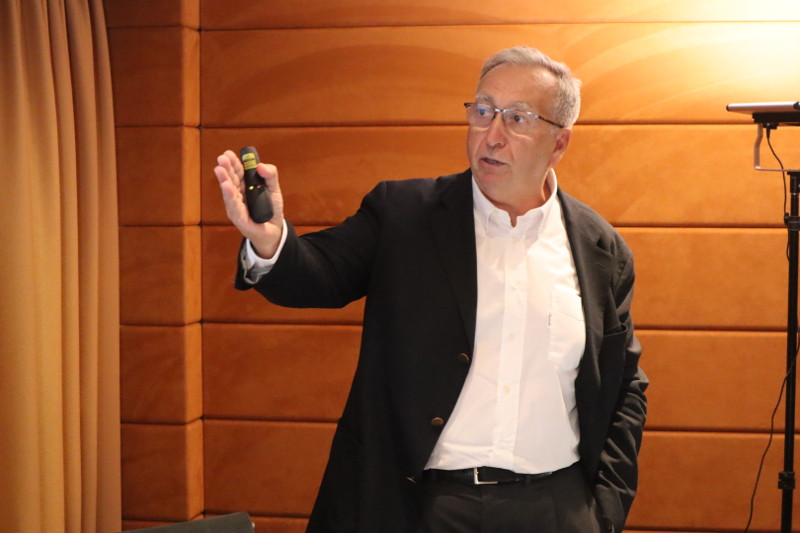
José María Baldasano, professor of Environmental Engineering at the Polytechnic University of Catalonia and full academician elect of the Royal European Academy of Doctors-Barcelona 1914 (RAED), addressed the challenges facing Spain in relation to the effects of climate change during the 4th International Act-European Congress of Interdisciplinary Research of the RAED, which was held last July in various Mediterranean capitals. Baldasano presented the work “Impactos y vulnerabilidad en la Península Ibérica frente al actual cambio climático” (Impact of and vulnerability of the Iberian Peninsula to current climate change).
Firm defender that the continuous climatic avatars are explained by the action of man, Baldasano summed up the conclusions of the main studies that on the basin of the Mediterranean have commissioned the main administrations. In this sense, the studies determine a greater increase of the temperatures with respect to the average in zones like the interior of the Iberian Peninsula, the Balkans and parts of Turkey. Likewise, they point out that in the Iberian Peninsula a strong decrease in rainfall is expected, that the availability of surface water is not expected to increase and that heat waves increase throughout the region.
 “The geographical position of the Iberian Peninsula on the subtropical edge and located between the Atlantic Ocean and the Mediterranean Sea means that its climate has a high variability and complexity, which is enhanced by the effect of the different mountain ranges and a high average altitude. All of which implies a set of added difficulties”, said the academician.
“The geographical position of the Iberian Peninsula on the subtropical edge and located between the Atlantic Ocean and the Mediterranean Sea means that its climate has a high variability and complexity, which is enhanced by the effect of the different mountain ranges and a high average altitude. All of which implies a set of added difficulties”, said the academician.
Baldasano said that climate change will alter animal life and, therefore, current ecosystems. “Altitudinal migrations and local extinctions will occur, the expansion of invasive species and pests will be favoured, will increase the impact of disturbances, both natural and of human origin, which will affect the structure and functioning of terrestrial ecosystems”. As for human life, Madrid will become one of the European capitals with the least rainfall and will have to address a plan to combat water scarcity.


